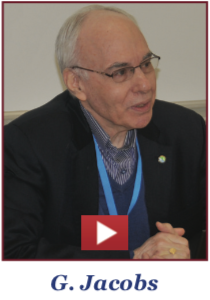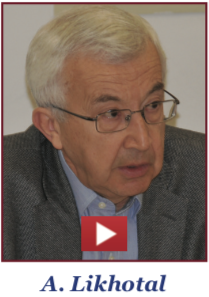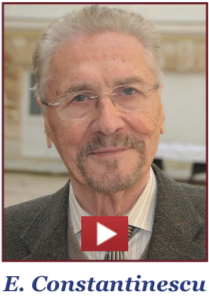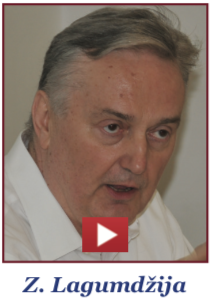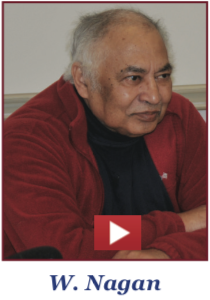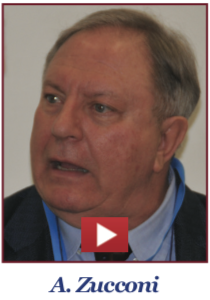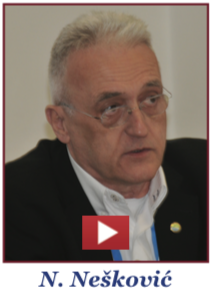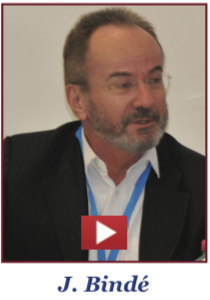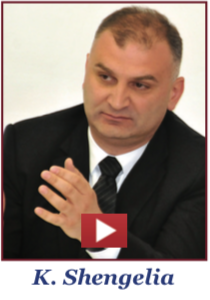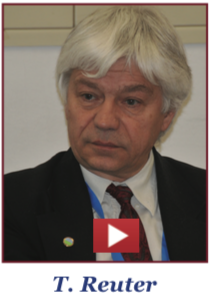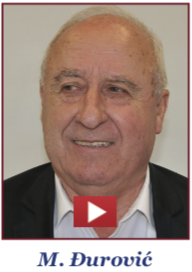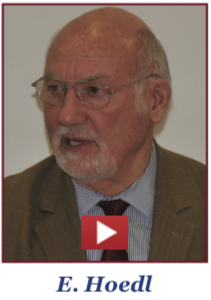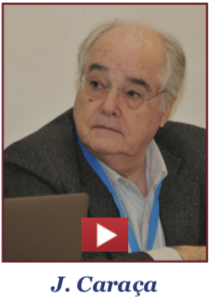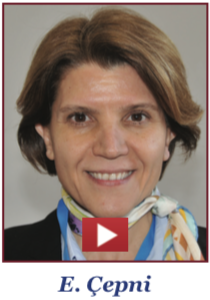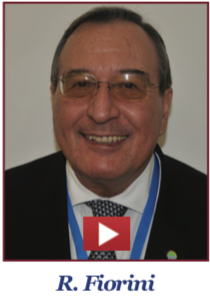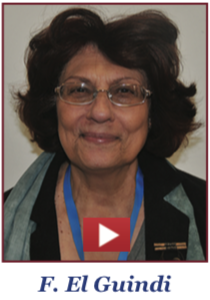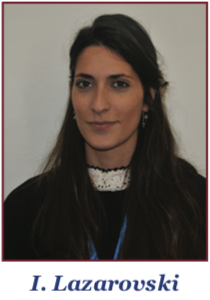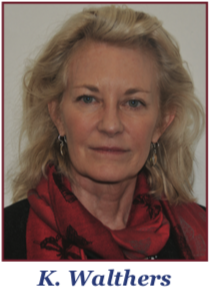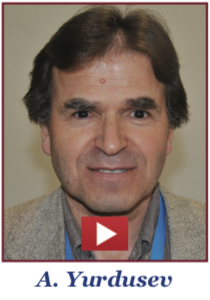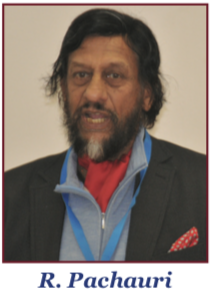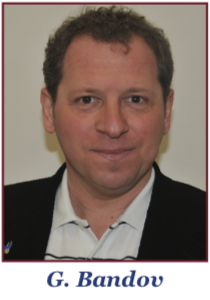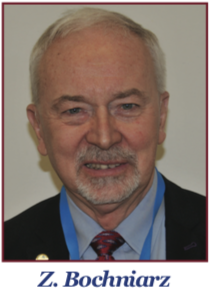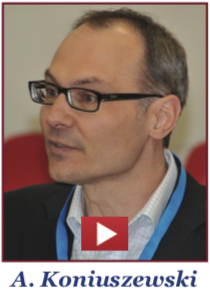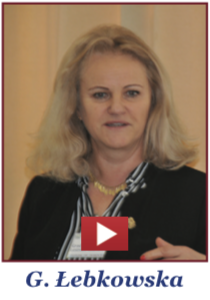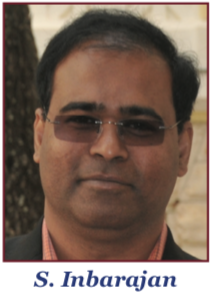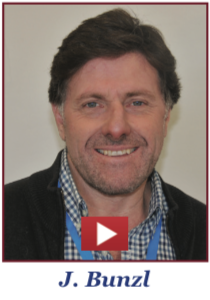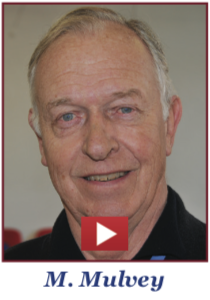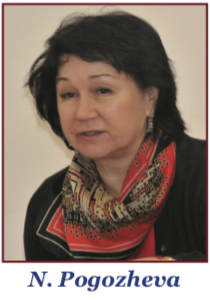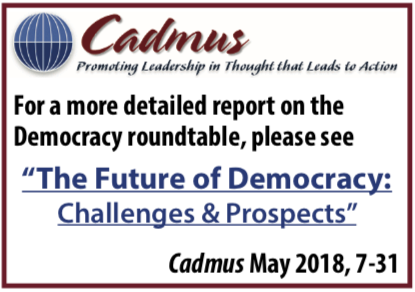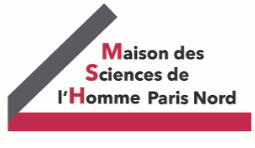| Click here for PDF version | |||||||||

The Future of Democracy: Meeting the Governance Challenge |
|||||||||
|
Unprecedented speed, interconnectivity, complexity and uncertainty are impacting all spheres of global society today, presenting challenges that were not foreseen even a few years ago. A quarter century after the sudden collapse of communism and the emergence of a new democratic consensus, liberal democracy itself is under threat. Former bastions of democracy are falling prey to populism and polarization previously associated only with newly emerging democracies. The shared vision and values that constituted the foundation for the democratic consensus are breaking down. Doubts, fears and insecurity have shaken faith in the institutions of governance and the confidence of youth in a better future. Nations are closing their borders, retreating from global cooperation, and casting blame on minorities and foreigners in a manner reminiscent of an earlier century. Popular disenchantment with the political establishment also reflects well-documented trends toward radical income and wealth inequality and rising levels of insecurity. The fairness, effectiveness and sustainability of democratic institutions and culture are under siege. Trust in the culture of liberal values on which modern democracy was founded is being undermined by neoliberal doctrines and policies. These challenges formed the context for the three-day roundtable on Future of Democracy conducted at the Inter-University Centre, Dubrovnik on April 3-5, 2018 by WAAS and World University Consortium in collaboration with Dag Hammarskjold University College “of International Relations and Diplomacy (Croatia), Mother’s Service Society (India) and the Person-Centered Approach Institute (Italy). A group of 40 politicians, faculty, researchers and graduate students engaged in a lively debate regarding the evolution of |
economic and political systems, values, technology and culture. The discussion generated valuable insights into our present dilemma, while maintaining the diversity of perspective essential for understanding a complex, multidimensional global phenomenon still in the process of unfolding. Major questions related to individual freedom, social tolerance, equality, rising expectations, the influence of money and corporate power, government responsibility and accountability were examined. Social power is shifting from traditional political parties to elites and special interest groups. Rapid technological change fueled by Industrial Revolution 4.0 is outpacing the capacity of cultures to adapt, posing further challenges to democracy. Disruptive changes in ICT are altering the control and content of the mass media undermining accuracy, impartiality and integrity. AI, robotics and automated manufacturing threaten to aggravate unemployment and inequality. Governments confront the challenge of navigating the rapid transition of society through all these challenges. To reverse the decline of democracy, the group emphasized the need for stronger regulation of the economy and finance sector to combat rising inequality, as well as fiscal reforms to provide the means for adequate social services. These efforts need to be coordinated through international cooperation on issues such as corporate taxation, labor practices and environmental standards. It called for reform of legislation on political donations and revolving-door lobbying practices, as well as steps to safeguard the independence of mass media, and discourage fake news and privacy violations for |
||||||||
|
|
|||||||||
| THE FUTURE OF DEMOCRACY, DUBROVNIK XV INTERNATIONAL COLLOQUIUM, PARIS OPEN SIMULATION FOR GLOBAL SHIFT UPCOMING EVENT: Future Education, RIO DE JANEIRO FUTURE EDUCATION, PONDICHERRY UPCOMING EVENT: Global Governance DUBROVNIK |
FROM THE WAAS ARCHIVES IMPLEMENTING AGENDA 2030, TBILISI GLOBAL BLOCKCHAIN SUMMIT, DENVER BOOK LISTING NEW TRUSTEES, NEW FELLOWS & ASSOCIATE FELLOWS PUBLICATION |
||||||||
 |
|||||||||
|
political purposes on social media platforms. It emphasized the need to humanize the redistribution of property to rectify serious imbalances that threaten social security. The roundtable also recognized that the current problems are not merely the result of failed policies and flawed practices. They reflect the fundamental inadequacy of prevailing social science theories that prevent a comprehensive understanding of the vital linkages between economic, political and social theory and practices. The development of integrated, value-based, human-centered social theory is essential. The discussion identified numerous practical steps that can be taken to moderate extreme aberrations resulting from the misuse of social power. Participants concurred that fundamental changes are needed to develop more effective systems of governance capable of fully supporting the aspirations of humanity, maximizing the equity and |
effectiveness of social institutions and the future evolution of global society. The group explored meaningful efforts to envision systemic political reforms that could be more successfully fulfill the potentials of democracy, such as proposals by the Independent Constitutionalists of United Kingdom. A new paradigm in education is urgently needed to prepare youth for responsible citizenship in an increasingly interconnected world. National governance can no longer be insulated from governance of the global community. Therefore, the discussion initiated at this roundtable will continue at the November roundtable on the Future of Global Governance. Report compiled from contributions by João Caraça, Elif Çepni, Fadwa El Guindi, Rodolfo Fiorini, Ivana Lazarovski & Thomas Reuter |
||||||||

Reframing the Role of International Institutions in Global Economic Governance |
|||||||||
 |
|||||||||
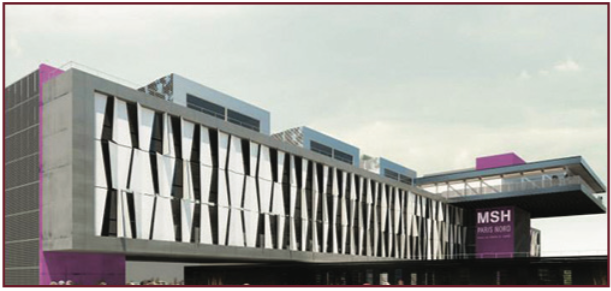
Spurred by a four-fold increase in world trade and seven-fold increase in foreign direct investment since 1990, the global economy, international financial assets and the foreigners’ share of the global equities market have also multiplied 3.5 times. The financialization of business coupled with the globalization of multinational corporations and supply chains has further magnified the inadequacy of national level economic policy instruments. This huge under-regulated global marketplace—which has been characterized as the last frontier or Wild West for business—is having a profound impact on national economies, unemployment, politics and public opinion.
|
Université Paris 13 Nord and Universidade de Brasilia under the direction of Pascal Petit. The colloquium focused on the role of international institutions on the formation and execution of economic policy and the need for a reformulation of economic theory to reflect the realities of the global economy in the 21st century. The conference included the presentation of 24 papers with emphasis on the role of international institutions including the IMF, WTO, ILO, OECD and FAO and their impact on global challenges related to the destabilizing impact of global megatrends, international trade, financial policies, the 4th Industrial Revolution, employment, food security, poverty, environmental management and sustainable development. Participants highlighted the serious limitations imposed by the existing structure of specialized international organizations acting independently of one another and basing their decisions on fragmented theories and models. Effective governance of the global economy necessitates the development of integrated theory and models and coordinated action by international organizations. It also included five special panel discussions on issues related to new economic theory, including the need to explicitly recognize the role of social power in economic theory and policy, the impact of social movements and processes on economics and politics, the need for integrated, globally coordinated strategies for implementation of the SDGs, the management of transnational organizations and tax havens, the growing impact of digitalization and the opportunities and governance challenges posed by cryptocurrencies such as Bitcoin. Another special session |
||||||||
 |
|||||||||
 |
|||||||||
|
focused on the theoretical and political challenges confronting the political economy of Croatia. The third day of the conference focused on the consequences and implications of these issues for the formulation of new economic theory. Discussion focused on the pressure of rising global expectations for rapid improvements in the quality of life and the distortions created by increasing inequality as a result of prevailing ideas and policies which drastically undervalue human and natural capital. Participants emphasized the inadequacy of neoliberal economic theories and the need for human-centered theories, models and accounting standards for understanding and managing employment generation, |
global food security, technology adoption, the globalization of business and finance, migration, resource depletion and climate change. Noting the evolutionary shift in values to emphasize equality, social justice, human dignity, freedom and cultural diversity of cultural heritage, they also emphasized the need to make explicit the underlying value systems on which economic theory is founded.
Click here for PPTs & Session Reports of the Paris Colloquium. Report compiled from contributions by Rodolfo Fiorini, Grażyna Leśniak-Łebkowska, Winston Nagan, Pascal Petit and Joanilio Teixeira |
||||||||
 |
|||||||||
Open Simulation for Global Shift
|
|||||||||
|
The workshop was conducted with the attendance of a qualified audience of thinkers and practitioners. It followed the reflections initiated in Vienna in November 2017 to promote a paradigm shift in the foundations of modelling and how it is used for policy assessment. This shift is made necessary by the unsustainabilities of modern human civilizations, which call for a socio-ecological transformation before deepening into collapse and tragedy. Such a transformation needs to start in the way we conceive reality, shifting from Newtonian to evolutionary systems views. Instead of the conventional story-telling of evolution going linearly in a purposeful direction, we should assume the unpredictable nature of complex evolutionary systems, shaped as they are by the interactions with biophysical limits and also by how we make choices. Unpredictability is what makes it possible |
to open the futures and give to human choice a relevant role in building desirable ones. From that point, open simulation can be effectively used as a tool to educate ourselves in the complexity of our relationships with biophysical limits. By reconnecting the planes of physical and social sciences and the realm of humanities, we can move from a hopeless situation to a space of infinite potentialities. The workshop discussed the conditions to engage in a new kind of simulation exercise, a Minimum Useful Model (MUM) designed to simulate the stocks and flows of human economies at a global level and in relationship with their biophysical limits. The next step in this activity is to convene a community of interested parties in the implementation of such a model for educational purposes. |

CALL FOR PAPERS
3rd International Conference on Future Education
November 12-14, 2018– Rio de Janeiro, Brazil

The future of education is the key to humanity’s future.
We can help make it happen right.
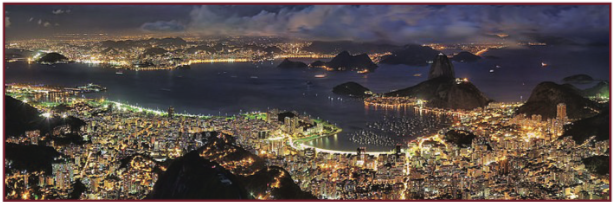
Building on a break-through conference on Future Education at the University of California, Berkeley, in 2013 and at Roma TRE University, in Rome, Italy, in November 2017, the World Academy of Art & Science (WAAS) and the World University Consortium (WUC), are now joining hands with the Ministry of Education of Brazil, UNESCO and Fundação and Faculdade CESGRANRIO to conduct a “3rd International Conference on Future Education—Latin American Perspectives” to identify practical measures to meet the needs and aspirations of major stakeholders—youth, students, teachers, employers, workers, research institutions, universities, governments and civil society, in this region of the world. The conference will be held in Rio de Janeiro on 12-14 November, 2018.
The challenge before society is that it is changing faster than ever before, generating unprecedented opportunities and challenges in its wake. Anticipating and addressing the consequences of the Fourth Industrial Revolution, environmental pressures, rising levels of youth unemployment and inequality, globalization and virtualization of business models, the explosive growth of online communications and education, the globalization of education, increasing intercultural contacts and migration will place enormous pressure on educational institutions, students, teachers and researchers.
The solution to this challenge is education, which is humanity’s most effective instrument for consciously steering social evolution to maximize the benefits and minimize the disruption associated with it. Education is the distilled essence of all human experience, civilization and culture over millennia. We extract the essence of all our learning, and provide it to every new generation in a concentrated, abridged form that is relevant and usable. Human development worldwide owes much to the spread of education. But how effectively is our present education system passing on this knowledge, so every human being
receives the essence of accomplishment? How well is it equipping today’s youth to cope with the challenges and avail of the opportunities of life in the 21st century?
There is an urgent need for expanding the reach, accessibility, affordability and quality of education at all levels. But multiplying the existing model is not sufficient. We not only need more education but education that is qualitatively different—a new paradigm. Updating course content is not enough. We need a paradigm shift in education from the subject to the student; from passive absorption of information to active understanding and thinking; from academic knowledge to personality development; from abstract concepts divorced from life to richly contextual knowledge; from narrow disciplinary expertise to inter-disciplinary perspectives; from individual competition to cooperative group learning; from the ability to memorize the right answer to the ability to solve problems, think independently, discover, innovate and create. An education that values the person, teaches how to relate to others—as individuals, groups, societies and humanity—and work together successfully, such an education is most valuable.
The Conference will be organized into streams focusing on the following themes:
- Early Childhood Learning;
- Person-Centered Learning;
- Teacher Education;
- Basic Education;
- Higher and Technological Education;
- Transdisciplinary Education;
- Online and Hybrid Learning;
- Education and Innovation;
- Education and Employment
If you are interested to present a paper on any of the conference themes, please send us an abstract (maximum 200 words) by August 10, 2018 to [email protected]. Full papers based on approved abstracts must be submitted by October 10, 2018. Visit the WAAS website for more details.

Implementing the New Paradigm in Indian Schools
January 28, 2018 – Pondicherry, India
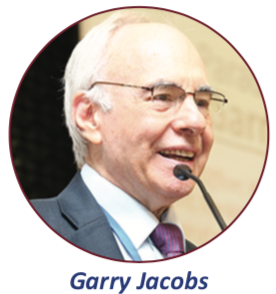 |
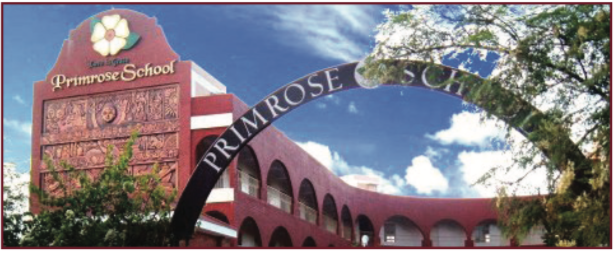 |
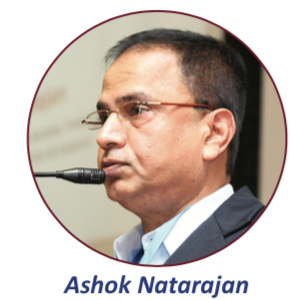 |
The world is moving faster and faster, with information multiplying more rapidly than we can organize or absorb. Job requirements are changing before our eyes. Technology is creating new jobs and destroying existing ones. The type of education we offer will be a critical determinant of our success in meeting these challenges. We require rapid and radical changes in the way we educate youth to prepare them for success in the society that is emerging. Students, educationists and employers from various parts of India came together at the Future Education Conference in Pondicherry, India on January 28, 2018, to discuss the key elements of education that the youth of India and the world need in order to achieve this success. It examined the changes needed in our schools and provided an opportunity to know, learn and adopt the different innovative methodologies, strategies and ideas practiced in different schools across India and overseas.
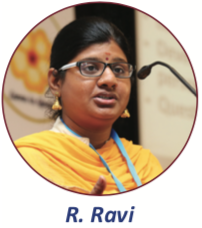 The conference was organized by The Mother’s Service Society (MSS), in collaboration with WAAS, WUC and leading educational organizations based in India—Primrose School, Global Institute of Integral Management Studies, MindMingle and SpellBee International. This conference built upon the insights and recommendations generated by the WAAS-WUC Rome Conference in November 2017 and applied the principles recommended in Rome to primary and secondary education with emphasis on practical strategies that can be implemented in the classroom. WAAS was represented by Fellows Garry Jacobs and Ashok Natarajan, and Associate Fellows Janani Ramanathan and Ranjani Ravi.
The conference was organized by The Mother’s Service Society (MSS), in collaboration with WAAS, WUC and leading educational organizations based in India—Primrose School, Global Institute of Integral Management Studies, MindMingle and SpellBee International. This conference built upon the insights and recommendations generated by the WAAS-WUC Rome Conference in November 2017 and applied the principles recommended in Rome to primary and secondary education with emphasis on practical strategies that can be implemented in the classroom. WAAS was represented by Fellows Garry Jacobs and Ashok Natarajan, and Associate Fellows Janani Ramanathan and Ranjani Ravi.
True education is an enjoyable civilizing experience. It is best when it combines two ideas, the clarity of objective facts and rational thought developed in the West over the past few centuries and the emphasis on subjective personal experience and values developed millennia ago in Asia. The conference dwelt on the essence of educational inspiration. It concluded that the highest goal of education should be to enable the child to emerge as a formed individual, capable of independent and original thinking yet deeply committed to the collective welfare and well-being.
It also examined practical strategies to promote active student-centered learning, contextuality, transdisciplinarity, values education, and development of emotional and social skills. Presentations covered the methods developed by educationist Glenn Doman to accelerate early childhood learning, the use of literature as a medium for character and life education, the use of etymology to improve language acquisition, the latest techniques in conceptual Mathematics, lessons from successful models of education, writing skills, speed reading, memory enhancement, technical skills and entrepreneurial training.
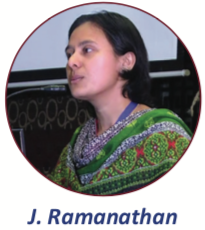 Great ideas and effective practices worthy of emulation already exist in different parts of the world. The conference showcased many current success stories in schools, thereby generating greater awareness and extending their reach. Participants reported that they had learned many best practices, activities, strategies, tools and ideas that could be directly implemented in their classrooms, without having to wait for legislation, management decisions or new investments. Another special feature was the participation of school students and their parents who presented their points of view.
Great ideas and effective practices worthy of emulation already exist in different parts of the world. The conference showcased many current success stories in schools, thereby generating greater awareness and extending their reach. Participants reported that they had learned many best practices, activities, strategies, tools and ideas that could be directly implemented in their classrooms, without having to wait for legislation, management decisions or new investments. Another special feature was the participation of school students and their parents who presented their points of view.
As a sequel to this conference and in order to reach out to a larger group of educationists representing a wider range of interests in global education, MSS proposed organization of a national level conference in Pondicherry, India in 2019.
Click here to watch the videos of Pondicherry Future Education Conference.
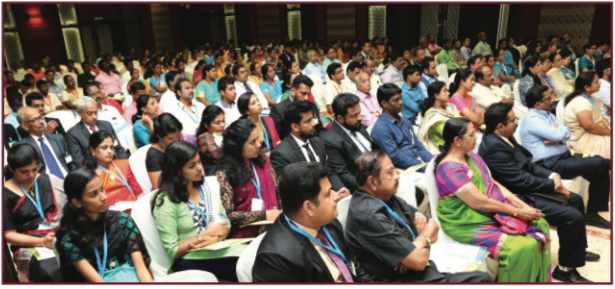

CALL FOR MODERATORS AND PANELISTS
Roundtable on the Future of Global Governance
November 22-24, 2018 – Inter University Centre, Dubrovnik

The future of global governance is far from clear. Just at the point when it appeared that nation states were relinquishing some portion of their claim of absolute sovereignty to higher levels of international institutions and international law, we are witnessing a visible reversion to nationalism. Brexit, the closing of borders within Europe, backlash against globalization, the retreat from democracy and multiculturalism, the return of Cold War rhetoric and militarization remind us that the competitive paradigm between self-interested nation states has yet to give way. Demilitarization, nuclear disarmament, democratization of the United Nations, abolition of the veto power, establishment of a world parliament, creation of a world central bank and world currency remain elusive utopian goals.
This three-day roundtable cum PG course will explore the recent challenges and opposition to the continued evolution of global governance to identify the key drivers of global social evolution, critical obstacles and impediments, the most desirable goals and effective strategies to further progress toward their realization. It will seek to draw insights from multiple fields—economy, politics, law, human rights, civil society, media, education, science, technology, psychology and culture—and explore the interdependences between them.
It will explore answers to a wide range of questions such as
- What have been the principal factors driving the evolution of global society over the past century?
- What have been the most beneficial outcomes of this process and the reasons for its significant achievements?
- What have been the most successful strategies applied to further accelerate the process?
- What have been the most serious problems, limitations and failures of global governance today?
- What would be the most equitable, effective and sustainable foundations for global rule of law?
- What modifications are needed in the constitution, structure, and functioning of international institutions to address these limitations?
- What are the likely benefits and risks of increasing movement toward global governance?
- What would be the most beneficial ultimate objectives of the evolution of global governance?
- What practical measures can be introduced to accelerate progress to achieve these objectives?
Please contact [email protected] or visit the WAAS website for more information.

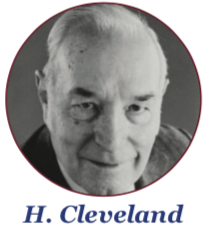
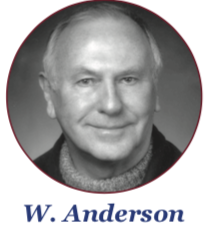 The new and rapidly globalizing state of affairs carries unprecedented potentials for conflict, and also for cooperation. The circumstances in which global civilization finds itself—the rapid spread of knowledge, the Cold War’s end, the rising numbers of people, their restless movement, the transformation of the life sciences, the revolution of rising expectations, growing fears about personal security and environmental disaster—all of these require a fresh look at global institutions, call for creative and realistic thinking about who governs what and how.
The new and rapidly globalizing state of affairs carries unprecedented potentials for conflict, and also for cooperation. The circumstances in which global civilization finds itself—the rapid spread of knowledge, the Cold War’s end, the rising numbers of people, their restless movement, the transformation of the life sciences, the revolution of rising expectations, growing fears about personal security and environmental disaster—all of these require a fresh look at global institutions, call for creative and realistic thinking about who governs what and how.
Excerpted from Harlan Cleveland & Walt Anderson
The Governance of Diversity: Report of the 1994 Assembly of the World Academy March 1995

Translating the SDGs into Tangible Results

Agenda 2030 is a historic, unprecedented initiative of humanity to accelerate global social evolution by concerted cooperation between all the nations of the world. Achieving a global consensus on the 17 Sustainable Development Goals and 169 targets is a remarkable achievement. But actual achievement of the SDGs in a short period faces serious challenges due to the complex relationship between the goals, the need for coordinated action on a global scale and the lack of an integrated theoretical knowledge framework. Moreover, action by national governments is merely one of the essential conditions for success. Achievement of the SDGs will require commitment and action by many other stakeholders and the active willing participation of the whole society. The success of Agenda 2030 will require radical advances in policy-making, institutional and functional social theory and coordinated action.
Over the past two years, WAAS has been examining the challenges to successful implementation of the 17 goals and formulating ways to increase and accelerate the conversion of goals into concrete development achievements. Last year the Academy presented a proposal to former UN Secretary General Ban Ki-moon in collaboration with Kyung Hee University, Seoul for establishment of the Global Institute for Sustainable Futures (GISF). GISF is envisioned as a new type of multinational, multi-stakeholder organization including a coalition of committed national governments, international governmental organizations, research institutes, universities, corporations and civil society organizations.
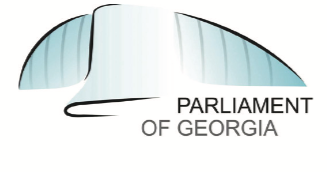 On May 28-29, 2018 the Parliament of Georgia hosted an Interna- tional Conference in Tbilisi “2030 Agenda for Sustainable Devel-
On May 28-29, 2018 the Parliament of Georgia hosted an Interna- tional Conference in Tbilisi “2030 Agenda for Sustainable Devel-
opment—Exploring challenges and lessons learnt for the next level of ambitious implementation”. Conference participants included nine ministers and senior officials of the Government of Georgia, the regional representa- tives of UNDP and World Bank, representatives of OECD, the Inter-Parliamentary Union, and other international experts. Georgia has taken the important step of consti- tuting a national committee on sustainable development to coordinate the work of government agencies, compa- nies and civil society organizations.
WAAS and WUC were represented by Kakha Shengelia, Member of the WUC Board of Directors and newly elected WAAS Fellow, who is President of the International Association of University Presidents and President of Caucasus University in Tbilisi. He stressed the importance of developing effective networks of institutions at the national and global level to coordinate both research and implementation. He recommended formation of a national committee of universities and research institutions in Georgia to coordinate research on the SDGs.
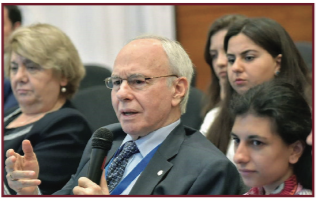 Garry Jacobs, WAAS-WUC CEO, stressed the need to close the multiple gaps between research and policy making, between compartmentalized government and university departments, and between research programs, policy-making, strategy, institutional programs, imple- mentation and results. He also emphasized that this would require implementation of a new paradigm in education capable of breaking down the disciplinary silos in both education and research and shifting the focus from dis- semination of past knowledge to generation of new ideas and approaches.
Garry Jacobs, WAAS-WUC CEO, stressed the need to close the multiple gaps between research and policy making, between compartmentalized government and university departments, and between research programs, policy-making, strategy, institutional programs, imple- mentation and results. He also emphasized that this would require implementation of a new paradigm in education capable of breaking down the disciplinary silos in both education and research and shifting the focus from dis- semination of past knowledge to generation of new ideas and approaches.

Emerging Technology for Human Well-being
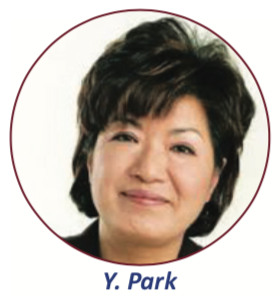 The birth of the World Wide Web in the early 1990s gave rise to visions of a flat uncentralized world in which information and power were universally and equitably distributed and individuals could interact with one another on equal terms with giant corporations. A quarter century later, we find the entire world dominated by a handful of technology companies with more concentrated power and wealth than any others in history. Now blockchain has emerged with the power to change that. Will it finally lead to a world in which the individual reigns supreme or will it give rise to new centers of even more concentrated power?
The birth of the World Wide Web in the early 1990s gave rise to visions of a flat uncentralized world in which information and power were universally and equitably distributed and individuals could interact with one another on equal terms with giant corporations. A quarter century later, we find the entire world dominated by a handful of technology companies with more concentrated power and wealth than any others in history. Now blockchain has emerged with the power to change that. Will it finally lead to a world in which the individual reigns supreme or will it give rise to new centers of even more concentrated power?
This was a central question debated at the Global Blockchain Summit in Denver on April 19-20, 2018 in which WAAS was invited to share the findings of its research on Human-Centered Economic Theory and the potential for rapid global social transformation. The summit featured some of the world’s most prominent distributed ledger experts as well as blockchain and cryptocurrency companies. Discussion focused on how to harness the new technology to maximize human welfare and well-being through diversity, inclusivity, and equality. It included noteworthy contributions by women from business and academia.
Blockchain is a direct, peer-to-peer transaction system, distributed ledger technology, designed for decentralization, democratization and transparency. It is already transforming supply chain, legal services, government operations and voting systems, insurance, business, healthcare and more.
Our times of planetary crises and grand transition are demanding the designing of the new social architecture—the paradigm change and a whole system redesign. What are the implications of blockchain and cryptocurrency for the whole system design? There are systemic implications of blockchain for energy, security, governance, health, food and water security and education. So far, we have had to rely on a centralized entity, such as national government, bank, media company to establish trust and agreement for collective socio-economic relationships and interactions. Blockchain is creating a digital web that connects collective intelligence and activates direct collaboration of collective network. It provides organizational structure for socio-economic change—it eliminates middlemen, reduces operating cost, lowers risks, increases security and speed, eliminates the need to sit on inventory, ends delayed payment, frees up capital, generates more creative financing, builds new lines of businesses and unleashes creativity in general.
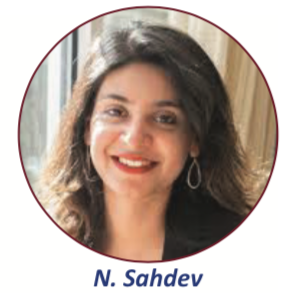 Just imagine a world in which every individual possesses their own unique identifier that is not dependent on any national agency for validation. A time when the title record of all property transactions is transparently verifiable every moment. A global social networking site the size of Facebook but without the need for a centralizing agency that owns and controls all the personal information on it. Imagine universal transportation and accommodation systems like Uber and Airbnb that are owned and operated by the participating individuals rather than huge corporations. A world in which all international financial transactions can be carried out instantly and almost free of charge without being dependent on the fluctuating rates of national currencies. Monetary systems specially designed to promote investments in education, healthcare, the other Sustainable Development Goals, or to track transparently all election expenditures so as to severely limit the impact of private money on election outcomes. These are just a few of the possibilities explored at the conference now made practical by the emergence of blockchain and the cryptocurrencies based on blockchain technology.
Just imagine a world in which every individual possesses their own unique identifier that is not dependent on any national agency for validation. A time when the title record of all property transactions is transparently verifiable every moment. A global social networking site the size of Facebook but without the need for a centralizing agency that owns and controls all the personal information on it. Imagine universal transportation and accommodation systems like Uber and Airbnb that are owned and operated by the participating individuals rather than huge corporations. A world in which all international financial transactions can be carried out instantly and almost free of charge without being dependent on the fluctuating rates of national currencies. Monetary systems specially designed to promote investments in education, healthcare, the other Sustainable Development Goals, or to track transparently all election expenditures so as to severely limit the impact of private money on election outcomes. These are just a few of the possibilities explored at the conference now made practical by the emergence of blockchain and the cryptocurrencies based on blockchain technology.
The Global Blockchain Summit inaugurated the Global Women in Blockchain (GWB), an international organization designed to activate and accelerate women’s leadership in the education, development and promotion of blockchain technologies. Special guest of the Global Women in Blockchain was Youngsook Park, renowned futurist, who led South Korean representation as the 3rd global hotspot for cryptocurrency use and exchange. Economist Navroop Sahdev described the potential application of cryptocurrencies as an effective means for crowdsourcing new business ventures without dependence on traditional financial institutions.
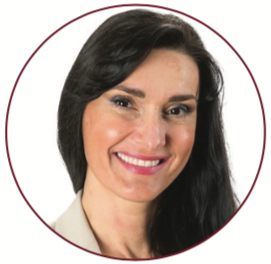 Mila Popovich, WAAS Associate Fellow and a leader in GWB, pointed out that the technology of the future is the one that can create conditions for every individual to design their own destiny in the greater economy of life. In that sense, it is crucial that womankind, their financial literacy and well-being be supported and encouraged via the new technologies, which would, in turn, ensure the health and robustness of the whole new financial ecosystem. Popovich observed that without such inclusive and ethical leadership at this formative stage of blockchain, we are running the risk of having old systems of inequality
Mila Popovich, WAAS Associate Fellow and a leader in GWB, pointed out that the technology of the future is the one that can create conditions for every individual to design their own destiny in the greater economy of life. In that sense, it is crucial that womankind, their financial literacy and well-being be supported and encouraged via the new technologies, which would, in turn, ensure the health and robustness of the whole new financial ecosystem. Popovich observed that without such inclusive and ethical leadership at this formative stage of blockchain, we are running the risk of having old systems of inequality

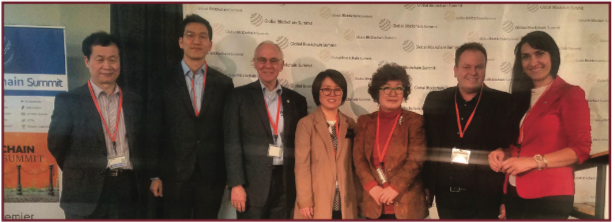 made more efficient rather than seeing the technology applied for transformative social good. She forewarned that the bubbling of cryptocurrencies can lead to a bust if those currencies are programmed by the old mindset. The real value and longevity of cryptocurrencies can only be ensured by their being driven by social incentives.
made more efficient rather than seeing the technology applied for transformative social good. She forewarned that the bubbling of cryptocurrencies can lead to a bust if those currencies are programmed by the old mindset. The real value and longevity of cryptocurrencies can only be ensured by their being driven by social incentives.
WAAS CEO Garry Jacobs focused on the nature of money as a networking tool designed to promote economic relationships and wealth creation. Describing the current preoccupation with Bitcoin and other cryptocurrencies as a speculative bubble, he focused on their enormous potential for more rapid and equitable global economic development, employment generation, individual freedom, transparent
Among the many creative applications discussed was the proposal of WAAS Trustee Stefan Brunnhuber to create special purpose cryptocurrency to fund global implementation of the UN Sustainable Development Goals, which was recently presented at the UN in Geneva.
Participants were unanimous in agreeing that we cannot afford to miss the opportunity to shape the course of global developments that the adoption of these new technologies brings. They were meant for positive social change and what is urgently needed is to have global technological and ethical standards established at their formative stage. With its ethical leadership, World Academy could play a significant role in steering the course of those developments.
Click here to watch the video presentation of Garry Jacobs.
Report by Mila Popovich

New book: A World Parliament: Governance and Democracy in the 21st Century
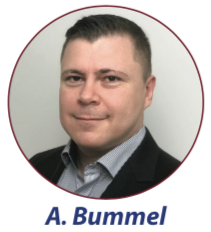 An event on 11 April 2018 hosted at the UN in New York marked the publication of the book A World Parliament: Governance and Democracy in the 21st Century, authored by Jo Leinen, a Member of the European Parliament, and Andreas Bummel, Director of Democracy Without Borders and WAAS Fellow.
An event on 11 April 2018 hosted at the UN in New York marked the publication of the book A World Parliament: Governance and Democracy in the 21st Century, authored by Jo Leinen, a Member of the European Parliament, and Andreas Bummel, Director of Democracy Without Borders and WAAS Fellow.
Comprising more than 400 pages, the book describes the history, today’s relevance and future implementation of the idea of a democratically elected world parliament and explores how world governance may be improved in view of the planetary challenges of the century. Following the emergence of democracy in the ancient Greek city states and its expansion to the modern territorial states in the 18th century, the authors argue that the next step towards global democracy is now imminent. Achieving a peaceful, just and sustainable world requires an evolutionary leap forward to a federal global government. According to Leinen and Bummel, the creation of a democratic world parliament is the centrepiece of this project.
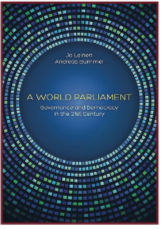 The first part of the book explores the philosophical foundations of cosmopolitanism and a world parliament since ancient times and traces the history of the idea and the attempts to bring it about from the French Revolution to the present day. The second part sets the issue in the context of global challenges such as climate change and planetary boundaries, the management of public goods, the stability of the financial system, combating tax evasion, terrorism and organized crime, disarmament, and protecting human rights. The authors argue that the construction of global democracy
The first part of the book explores the philosophical foundations of cosmopolitanism and a world parliament since ancient times and traces the history of the idea and the attempts to bring it about from the French Revolution to the present day. The second part sets the issue in the context of global challenges such as climate change and planetary boundaries, the management of public goods, the stability of the financial system, combating tax evasion, terrorism and organized crime, disarmament, and protecting human rights. The authors argue that the construction of global democracy
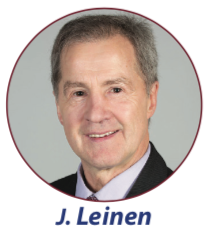 also plays a decisive role in combating hunger, poverty and inequality and in global water policy. Rapid developments in the fields of bio- and nanotechnology, robotics and artificial intelligence are giving rise to fundamental questions that humanity is not yet institutionally prepared for.
also plays a decisive role in combating hunger, poverty and inequality and in global water policy. Rapid developments in the fields of bio- and nanotechnology, robotics and artificial intelligence are giving rise to fundamental questions that humanity is not yet institutionally prepared for.
There is an overarching narrative that describes the dysfunctions and failings of today’s international order. At the same time, the alternative of a democratic world order and its underlying principles is presented in detail. The authors stress that there is a right to democracy that applies not only at the national but also at the global level. Against the backdrop of the power structures of the transnational elite, the book argues for the implementation of a new global class compromise and traces the long-term development of a planetary consciousness and global solidarity. The third part discusses a possible path and scenarios towards the realization of a world parliament and the transition to a democratic world order.
Experts who had an opportunity to read an advance copy included Frank Biermann, chair of the Earth System Governance project and professor at Utrecht University. According to Biermann, the book represents “the new standard work on the idea of a world parliament” and “a milestone in the debate on the democratization of global governance.”
In the introduction to the book, the authors write that “we know that a world parliament and a world legal order cannot be realized from one day to the next. But we argue that it is high time to set this process in train by establishing a United Nations Parliamentary Assembly.”

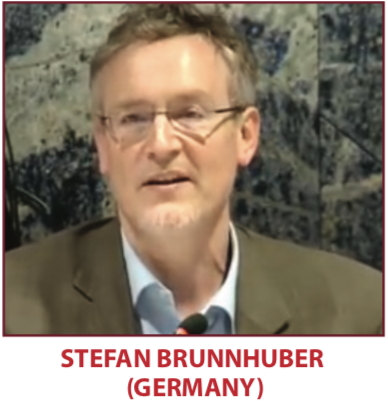
Stefan Brunnhuber is a socio- economist and psychiatrist who has been actively engaged in the activities for WAAS for the past five years. He has made seminal contributions to the Academy’s work on Mind, Thinking & Creativity and on a New Paradigm in Education to improve learning outcomes and promote creative thinking. As an active member of the New Economic Theory Working Group, he has introduced new approaches to fund the UN Sustainable Development Goals by creation of complementary cryptocurrencies specially designed for investment to achieve the Agenda 2030 targets. He is currently Medical Director & Chief Medical Officer at the Diakonie Kliniken Zschadrass, Colditz. |
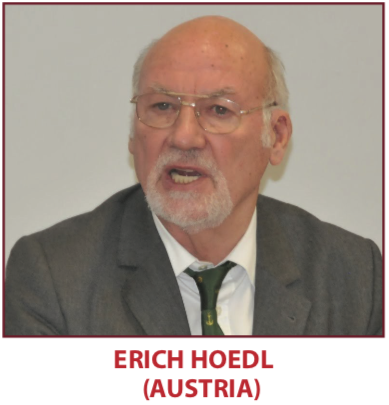
Erich Hoedl is a quality assurance consultant on education and former rector of the University of Wuppertal and the Graz University of Technology. His career has spanned five decades in diverse fields ranging from aircraft development to political economy and university administration. He has been an active member of the WAAS New Economic Theory Working Group and a frequent speaker and panelist at the Academy’s PG courses and roundtables at IUC Dubrovnik. He is currently Vice President of the European Academy of Sciences and Arts, member of the Austrian Accreditation Council for private universities, and member of the editorial board of Cadmus Journal. |
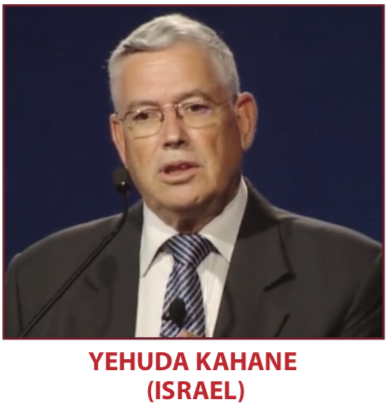
Yehuda Kahane is a recognized expert in the global insurance industry and a very successful multi-entrepreneur, was the author of a proposal to the world association of insurance and pension funds at the Rio Environmental Conference to invest a major portion of their resources into sustainable development projects that promote long term human welfare, as a result of which an accord was signed by the participating companies to redirect trillions of dollars of their investment portfolio and a special award was issued to him. He is currently the chairperson and co-founder of YK Center, senior member of faculty at the School of Management, Tel Aviv University. |


Contents of the Recent Cadmus Issue – May 2018
The World in Transit: Going Beyond Myopic Visions
by Alexander Likhotal
The Future of Democracy: Challenges & Prospects
by Garry Jacobs et al.
The Future of the Nation-state in an era of Globalization by Keith Suter
Literature as a Key to Understanding People, Society and Life by Janani Ramanathan
Book Review of Come On!: A Report to the Club
of Rome: New Frontiers by Michael Marien
The Context and Values Inherent in Human Capital
by Winston P. Nagan & Samantha R. Manausa
On the Monetarized and Non-monetarized Contributions to National Wealth by Marta Neškovic & Nebojša Nešković
Unorthodox Thoughts on the Economic Crisis and the Dictum of Protagoras by Gerald Gutenschwager
Cryptocurrencies and the Challenge of Global Governance by Garry Jacobs
Is Falsehood Becoming Untenable?
by Robert van Harten
Western and Eastern Values are Complementary
by Ashok Natarajan

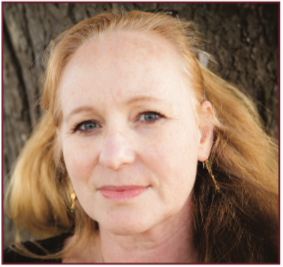
NORA BATESON (SWEDEN)Founder, President and Director of Research and Exhibition, International Bateson Institute, Sweden; Award-winning filmmaker, writer, keynote speaker, workshop leader, policy advisor and educator; Member, Club of Rome. |
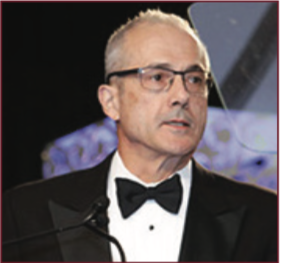
ADRIAN BEJAN (USA)J.A. Jones Distinguished Professor of Mechanical Engineering, Duke University, USA; Honorary member, American Society of Mechanical Engineers; Discovered Constructal Law; Anti-chance philosopher. |
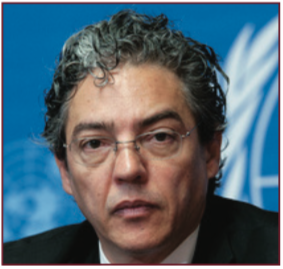
CHRISTIAN GUILLERMET- FERNÁNDEZ (COSTA RICA)Director General for Foreign Policy at the Ministry of Foreign Affairs of Costa Rica; Chairperson-Rapporteur of the UN Open Ended Working Group on the right to peace; Former Political Coordinator, UN Security Council. |
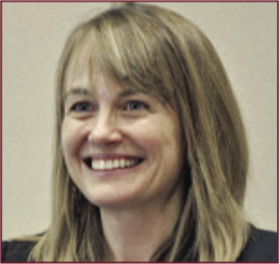
LAURA ANN ROSENBURY (USA)Dean and Levin, Mabie and Levin Professor of Law, University of Florida, USA; Board Member, Children’s Healthcare Is a Legal Duty, Inc.; Fellow, The American Bar Foundation; Member, American Law Institute. |
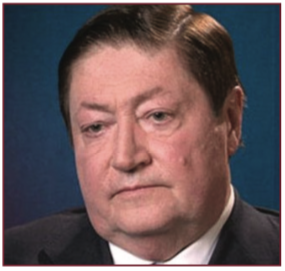
YURY NIKOLAYEVICH SAYAMOV (RUSSIA)UNESCO Chair, Global Problems and Emerging Social and Ethical Challenges for Large Cities and Their Population; Professor, Faculty of Global Studies, Lomonosov Moscow State University, Russia. |
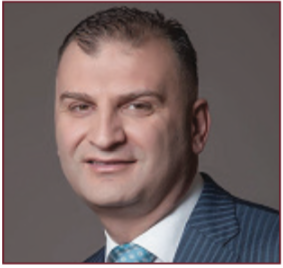
KAKHA SHENGELIA (GEORGIA)President, International Association of University Presidents, UK; President, Caucasus University, Georgia; Former Member of Parliament, Georgia; Former Deputy Chairman, Committee of Education, Science, Sports. |
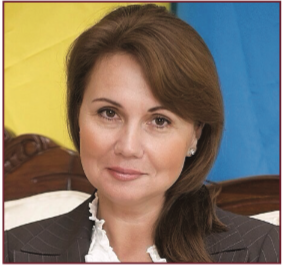
OKSANA SLIUSARENKO (UKRAINE)Vice Chairman, Ukrainian National Committee of the International Chamber of Commerce, Ukraine; Founder, Montenegro-Ukrainian Business Association; Former Head, Ukrainian Academy of Business and Entrepreneurship. |
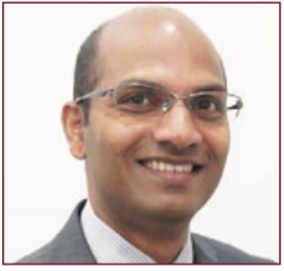
AJAYAN VINU (AUSTRALIA)Material scientist; Global Innovation Chair Professor for Advanced Nanomaterials and Director, Global Innovative Centre for Advanced Nanomaterials, University of Newcastle, Australia; Fellow, Royal Society of Chemistry. |

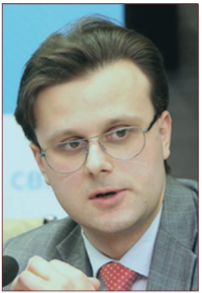
VIKTOR HALASIUK (UKRAINE)President, Ukrainian Association for the Club of Rome; Member of Parliament of Ukraine. |
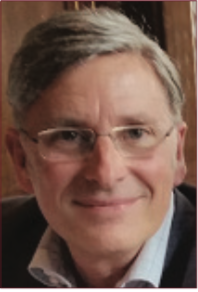
MARIO HYTTEN (SWEDEN)Chief Executive Officer, Planetaire AB, Sweden; Managing Director, Captimax Sports Media Ltd, Sweden. |
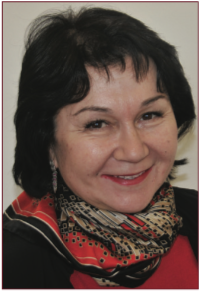
NATALIA POGOZHEVA (UKRAINE)CEO, Green Education Ukraine Foundation; Board Member, Regional Development Association. |

